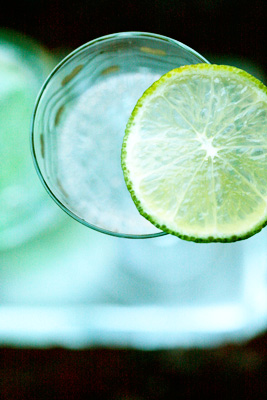 What you drink can be almost as important for your health as what you eat!
What you drink can be almost as important for your health as what you eat!
So in this post you’ll learn all the basics of what’s great to drink, how much you should be getting, and the truth about several health myths out there.
Wonderful Water
Forget all the health myths out there that say you don’t need to drink plenty of water on a daily basis! Most people are regularly underhydrated, but they don’t know it. Oftentimes, people believe that when they drink coffee, soda, or tea, they’re getting the hydration they need to keep their body functioning properly. But that’s just not true.
Clean, fresh water (tap or bottled) is the best way to hydrate yourself and everything from your organs to your skin need water to function — in fact, you need water at a cellular level for the very important job of carrying nutrients throughout your entire body.
If you suffer from regular tummy troubles, one of the easiest steps that you can take on your journey to a healthier digestive system is to add more water to your diet.
Not only do you need enough liquid in your system to keep your bowel movements regular, but water also has many other functions in the body, including healthy kidney function.
Not getting enough water in your diet can also have some serious implications for your waist line. Oftentimes, when people feel hunger pains, what they’re actually feeling is thirst. If you’re getting hungry, try to have a large glass of water before you get something to eat. That might be enough to satisfy you before your next meal, and you’ll see a noticeable difference in the way you feel.
A simple change with big impact is to replace all of the soda that you drink with water. That means no soda, sweetened tea, or sweetened coffee. None of those drinks give you the undeniable benefits that drinking plain, clean water will give you. If that seems a little too difficult, then begin by replacing just one soda or sugary drink a day with water. Once you take that first step, gradually reduce the amount of soda while increasing the amount of water.
How Much Water Should You Drink?
If you’re not sure just how much water to drink each day, keep this calculation in mind: Each day, aim to consume half your body weight in ounces of water. For instance, if you weigh 120 pounds, then your goal should be 60 ounces of the clear stuff every day. Calculating your specific consumption goal will help make it easier for you to feel hydrated and full throughout the day.
A great tip for getting more water in your diet is to carry around a big water bottle with you everywhere. You’ll have it right at hand whenever you need a drink, and you’ll be surprised at how quickly you reach your daily goal.
Is Wine Fine?
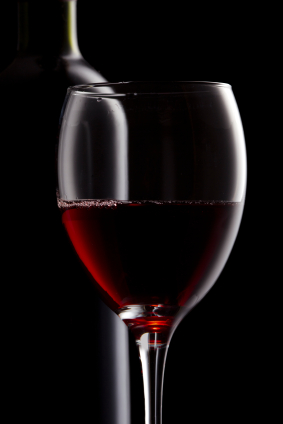 Is drinking wine on a regular basis safe? If you have a clean bill of health, any doctor or nutritionist will tell you that enjoying wine or any alcoholic beverage in moderation is safe.
Is drinking wine on a regular basis safe? If you have a clean bill of health, any doctor or nutritionist will tell you that enjoying wine or any alcoholic beverage in moderation is safe.
But here’s the caveat: it’s one drink a day for women and two for men, the equivalent to 5 ounces of wine (that’s about 1/2 a small coffee mug, a small pour). Do you like to come home from work and kick back with a glass of wine to unwind from the day? So if you’re unsure of how large your pour is, place water in a measuring cup up to 5 ounces. Then transfer that into your wine glass and see if your “pour” is on the heavy side or if you hit the mark. Or find a smaller glass that can hold around 5 ounces, so you’ll be able to portion out your wine perfectly each and every time.
What about the antioxidants in wine like resveratrol?
The best way to get high levels of antioxidants is by including superfood veggies and fruits in your meals each and every day. Studies show that resveratrol is not that bioavailable, meaning your body isn’t able to absorb it well.
Mega doses are usually administered in these animal trials — doses well over what an average person could get from moderate drinking. But there are plenty of studies that say that moderate wine consumption can increase your HDL (the good cholesterol) or be beneficial for your heart in other ways.
However, there are negatives to drinking wine on a regular basis. According to this amazing article in Eating Well magazine, “Alcohol depresses the production of antidiuretic hormone (ADH), which helps keep you hydrated. Dehydration can lead to electrolyte imbalances (characterized by nausea, dizziness and diarrhea) and headaches.”
Alcohol can also strip your body of the vital nutrient folate, which is why doctors say that drinking on a regular basis can increase the risk of breast cancer. Alcohol is treated like a poison in the body, forcing your liver to work overtime just to process it — and boozy binges can inflame the pancreas and can kill brain cells.
Is Coffee Bad for You?
 There have been some new amazing studies on the antioxidant content of coffee, as well as how coffee affects us and our memory as we age.
There have been some new amazing studies on the antioxidant content of coffee, as well as how coffee affects us and our memory as we age.
Coffee has pros and cons when it come to health, although the cons can be easily managed. For example, drinking too much coffee can interfere with sleep (the easy solution is to have your coffee in the morning but skip that afternoon cup), and ask your doctor about caffeine if you have heart issues.
If coffee is safe for you to drink, you’ll be happy to know that recent studies mentioned in the NY Times blog have linked moderate coffee drinking (around three or four 5-ounce cups per day — that’s the size of a dainty tea cup) to a reduction in type-2 diabetes, basal cell carcinoma (the most common skin cancer), prostate cancer, oral cancer and breast cancer recurrence.
Research from the Mayo Clinic says that coffee could boost immunity through liver health along with six other potential benefits.
But if you suffer from IBS or other stomach issues cutting coffee may benefit you. Try tea such as green or redbush. Green tea has long been revered for its antioxidant load. Medical studies have associated multiple health benefits with the consumption of the pale golden-green brew, from fighting tumors resulting from breast cancer and calming inflamed bladders to helping prevent autoimmune disease and even improving memory by protecting brain cells.
Green tea has a lovely, slightly vegetal flavor but if you prefer a richer full-bodied brew, you might enjoy redbush tea which also has a high antioxidant load.
Red bush also contains soothing compounds that work as an antispasmodic; people who have chronic stomach problems and cramps can enjoy this tasty tea since it’s not only soothing but also caffeine-free. Redbush (or Rooibos) is only grown in South Africa. Generally, the leaves are oxidized, producing the distinctive reddish-brown color of rooibos that gives it a rich, caramelized flavor. Redbush makes delicious iced tea and a great substitution for soda cravings. You can also add seltzer to turn your iced redbush into a spritzer.


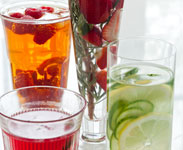 Are you ready to look better, feel more energized, and get back that youthful feeling you remember having as a kid? I can help you on a journey that will change the way you eat — for good. My
Are you ready to look better, feel more energized, and get back that youthful feeling you remember having as a kid? I can help you on a journey that will change the way you eat — for good. My 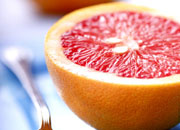



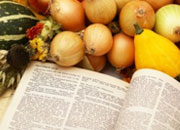







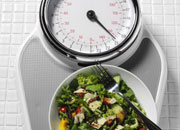


 As a healthy cooking expert, health coach and TV host,
As a healthy cooking expert, health coach and TV host, 


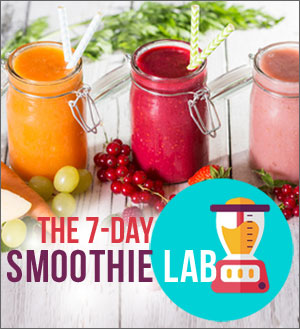
I have a friend who loves to come home and drink a glass of wine. He would always say that it would be healthy for him. However, I will show him this article so he can see how much he is actually drinking.
Unfortunately, you did not include soda and other bottled drinks which include sweeteners and caffeine. Could you please comment?
Well we all know that soda is a no-no, right?